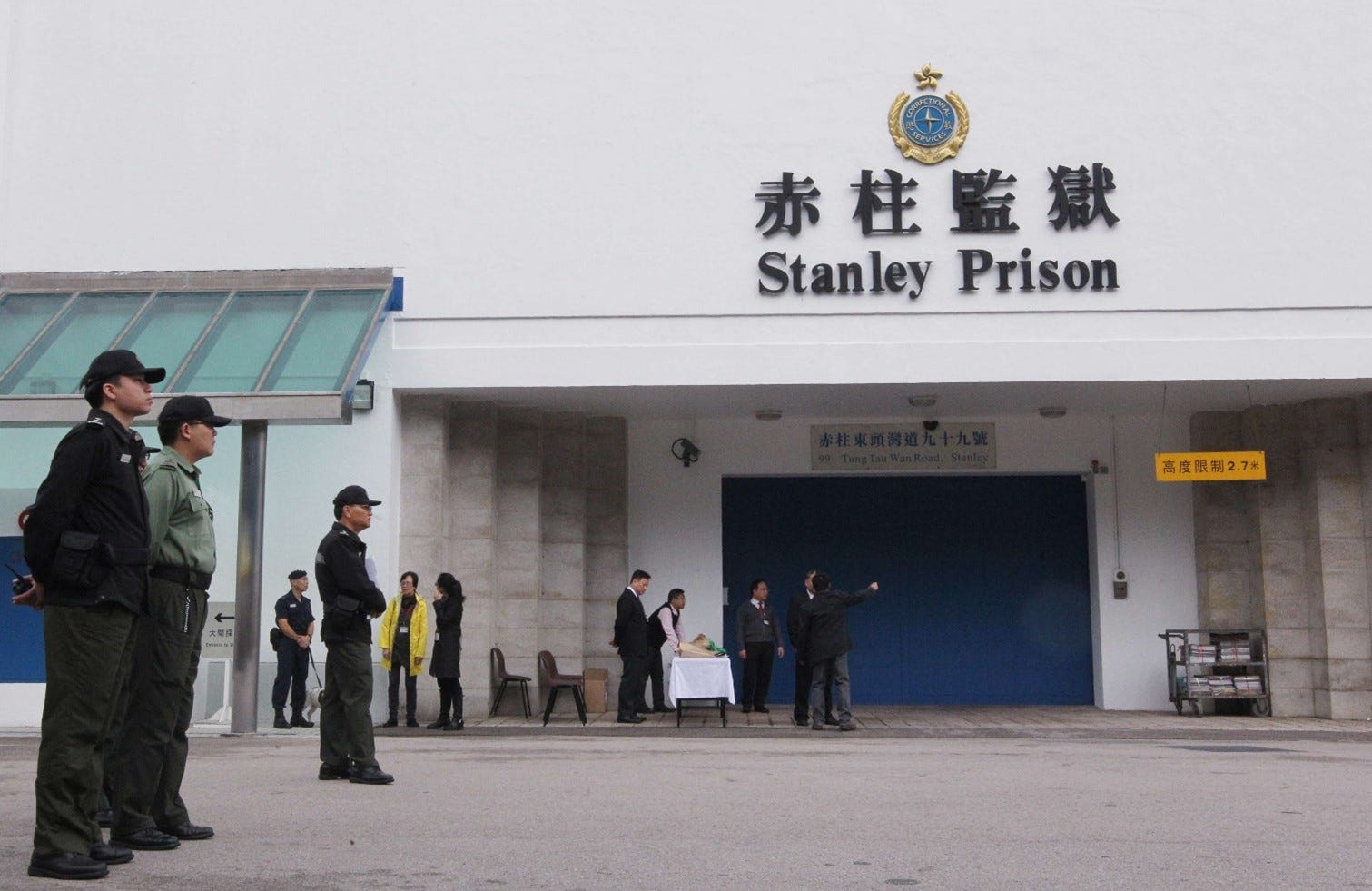Hong Kong to crack down on prisoner visits
Under the pretext of security, the Hong Kong government presented lawmakers with a bill aimed at tightening the rules for meetings with doctors, lawyers, and religious leaders. According to its backers, violations and abuses have characterised prison visits in the past. According to the authorities, human and civil rights, including those of prisoners, should be “limited by the need to maintain national security, discipline and order.”
Hong Kong (AsiaNews) – The Hong Kong government today presented lawmakers with proposed legislation that would tighten the rules for prison visits, limiting prisoners’ access to lawyers, religious and spiritual leaders, as well as medical doctors.
The proposal is deemed necessary because of general security issues and comes a few days after the fifth anniversary of the controversial National Security Law imposed by China, which saw hundreds of people arrested amid a widening crackdown on dissent.
Activists and critics point out that, if approved, the law would further restrict already limited prisoners’ rights.
In the paper submitted to members of Hong Kong's Legislative Council, the Security Bureau said that some past prison visits resulted in abuse under the guise of “humanitarian relief” for those in jail and “aroused hatred” among inmates towards the Chinese and Hong Kong governments.
Under the proposal, the Correctional Services Department (CSD) could request a magistrates' warrant that would give it the right to block or impose conditions on prisoner contact with certain lawyers and doctors.
Hong Kong’s Basic Law protects confidentiality between lawyers and clients, a prerogative that applies in court as well as in prison, as well as grants the accused the right to choose their lawyer.
But Security Secretary Chris Tang told lawmakers that while prisoners do not lose all their rights, those rights are “not the same” as those of people not in jail. The time they can exercise those rights and freedoms must be “limited by the need to maintain national security, discipline and order.”
After mass pro-democracy protests in 2019, China imposed a national security law on the former British colony in 2020, which includes the possibility of life in prison for crimes such as subversion.
The ongoing crackdown on dissent, including the use of powerful new laws to detain democracy advocates and shut down civil society groups, has drawn criticism from many countries, including the United States and the United Kingdom.
For their part, Chinese and Hong Kong authorities say the laws have brought stability and order.
Jailed pro-democracy activist Owen Chow and his lawyer were convicted last year of violating prison rules after the latter smuggled a complaint form out of prison without permission.
A senior lawyer, who declined to be identified because of the sensitivity of the matter, told Reuters that the proposal further “extends the power” of the authorities over those accused of national security crimes.
For Derek Chu, founder of the prisoners’ rights group Waiting Bird, the proposal would further silence people like Chow, a lawyer and activist.
“It cuts off the support to the political prisoners inside, further isolating them and undermining the will of those who are willing to fight for justice and human rights," Chu warns.
Chow and his mother Medina were among eight people arrested for sedition under Article 23 of the national security law enacted last year, because they used a Facebook page to “advocate hatred” against the Chinese and Hong Kong governments.
A few days ago, 1 July, Hong Kong marked 28 years since its return to Chinese rule, as part of an agreement with the United Kingdom that was supposed to safeguard its status through the "one country, two systems" model.
That same date marks the fifth anniversary of the National Security Law that Beijing introduced to crush Hong Kong’s pro-democracy movement.
China’s iron fist has effectively emptied Hong Kong’s institutions of their democratic nature and led to the arrest of 332 people on charges of "secession", sedition and "foreign influence".
Of the 161 people convicted, at least 102 are still serving time in prison. Meanwhile, the trial of Jimmy Lai is expected to enter its final phase on 14 August.
07/08/2020 11:17
30/01/2024 14:48
13/10/2020 12:37
30/06/2020 12:43
22/06/2021 13:28







.png)










